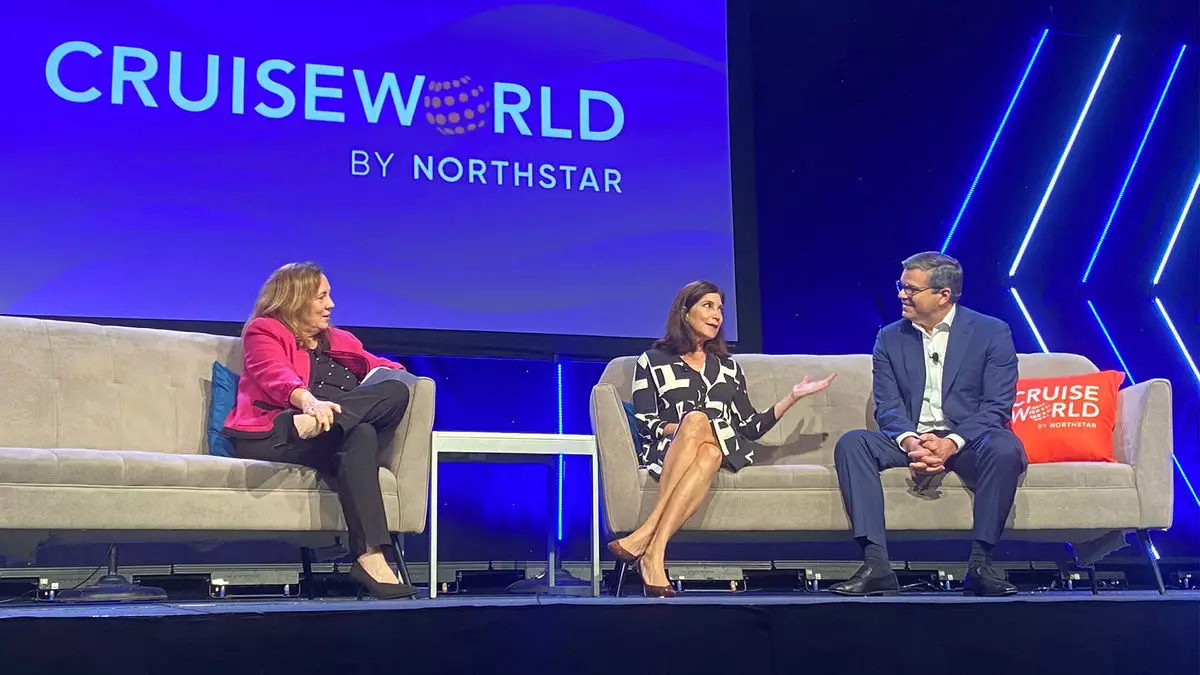The cruise industry has weathered immense challenges in recent years, particularly due to the COVID-19 pandemic, which drastically altered travel dynamics. As travel advisors witnessed their booking share plummet during this crisis, they were faced with an existential threat to their business model. However, recent remarks from Frank A. Del Rio, the president of Oceania Cruises, indicate that the industry is making a strong recovery. Oceania’s dependence on travel advisors has re-emerged as a key component of its business strategy, making it clear that travel professionals are integral to the cruise line’s comeback.
Before the pandemic, travel advisors were responsible for approximately 70% of cruise bookings, a statistic that dropped significantly to 52% by 2021. However, data from Phocuswright’s “U.S. Cruise Market Report 2023-2027” reveals a promising resurgence, with advisors expected to account for 70% of bookings by the end of this year. This rebound signifies a renewed trust in the travel advisory model, showcasing the industry’s ability to adapt to changing preferences and behaviors in the wake of the pandemic.
Del Rio’s praise for the technological advancements adopted by travel advisors highlights the industry’s innovative spirit. The ability of travel advisors to access systems that may even surpass the technology offered by cruise lines is telling of a competitive market. Oceania understands the importance of equipping its partners with the best tools available and is working to elevate its own technology in response. By investing in improved systems, cruise lines can create a more seamless experience for both advisors and their clients.
Looking ahead, Oceania Cruises is positioning itself to better serve travel advisors by launching an Oceania Cruises Academy aimed for 2025. This interactive educational platform will provide vital resources through videos and updated information on the brand’s offerings. Training initiatives like these have the dual benefit of enhancing advisor knowledge and establishing a stronger connection between the brand and its partners.
Del Rio also emphasized the need to convert existing premium clientele into Ultra-Premium consumers. Oceania Cruises is marketed as an “aspirational brand” at an accessible price point, aligning with consumer expectations for luxury travel experiences. With premium cruise lines like Princess and Celebrity serving as gateways, Oceania aims to attract a demographic that is willing to invest in elevated travel experiences. According to Scott Kluesner, Oceania’s vice president of strategic accounts, about 55% of guests are likely to sail with Oceania again, illustrating the brand’s ability to foster customer loyalty.
The cruise industry has shown significant resilience in bouncing back from the tribulations of the pandemic. Oceania Cruises, with its strategic reliance on travel advisors, innovative technological outlook, and plans for educational initiatives, appears poised for a promising future. By recognizing the strengths of its travel advisor partnerships and addressing market segmentation, Oceania is not just surviving; it is actively positioning itself for sustainable growth in a competitive landscape. The future looks bright for those willing to navigate these evolving waters.


Leave a Reply